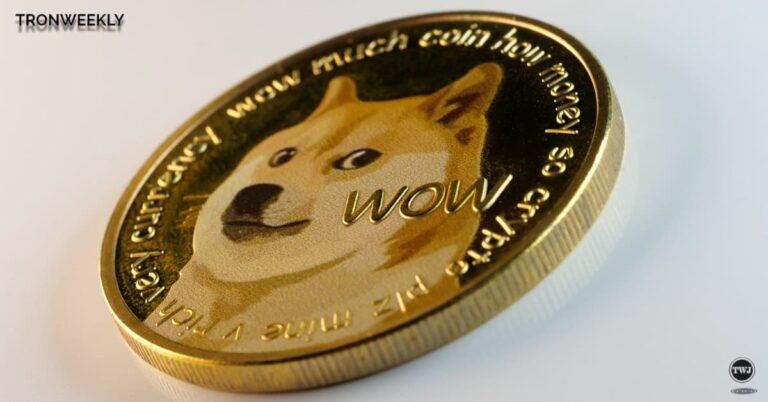- SEC to examine the 19B-4 deposit of Graycale for the list of Dogecoin ETF.
- The Graycale FNB aims to offer exposure to DOGE without direct property.
- Grayscale widens its ETF push, after success with Bitcoin and Ethereum.
Grayscale has filed a 19B-4 form with the SEC, asking the approval to launch a Dogecoin ETF spot. This file follows a similar bit in the Bit direction and highlights the growing interest in currency investment products.
Gray files for approval of the FNB Dogecoin First Spot
The competition for an FNB Spot Dogecoin in the United States has intensified while Nyse Arca has filed a 19B-4 form with the SEC. This file requires the approval of gray size DOGECOIN TRUST to stick and exchange like an ETF. The deposit represents a major step towards the broader institutional adoption of DOGE as an investment actor.
Graycale’s file comes shortly after Bit in the direction of its own request to launch a Dogecoin ETF. The two companies aim to exploit the growing demand for Doge -based investment products. The race for the first Spot Doge ETF gained momentum with increased institutional interest for cryptocurrencies.
Graycale’s push for a Dogecoin ETF is part of a wider strategy to extend its ETF wallet. The company also applied to convert its XRP confidence into an ETF as well as for Litecoin and Solana ETF. This aggressive expansion underlines Graycale’s desire to strengthen his position as leader in the market for cryptocurrencies.
Dogecoin ETF to provide regulated exposure to investors
The FNB offered in Graycale Dogecoin will offer an exposure to investors in Doge without requiring direct property. Coinbase Pustody Trust will manage the secure storage of Doge Holdings, while Bny Mellon will take care of administrative responsibilities and transfer agents. This structure guarantees that investors can be exposed to DOGE thanks to a regulated financial product.
The deposit also highlights the various cases of use of Dogine and its role in payments for goods and services. In addition, DOGE is used for transaction costs on the DOGE network and to encourage minors to verify transactions. These features underline the potential of DOGE as a payment method and a secure asset for institutional investors.
DOGE’s relative regulatory clarity compared to Solana and XRP can improve its ETF approval. Legal disputes on other cryptocurrencies have slowed down their approval processes. This could work in favor of companies seeking to launch a Dogecoin ETF.
All eyes on dry for approval of the FNB of Dogecoin
The dry will now examine the file under the 19B-4 Process, with a decision due within 45 days of its publication in the Federal Register. If the dry needs more time, the examination period may be extended at 90 days. If the SEC approves the file, Grayscale will join the ranks of companies offering ETF based on cryptocurrencies, such as Bitcoin and Ethereum.
The response of the SEC to these deposits will be closely monitored by investors and institutions. Although I bit in the world are the advantages, other companies could soon join the race. The regulatory result could establish important precedents for future financial products based on cryptocurrency.
The approval of an ETF Spot Dogecoin would mark an important step for the traditional acceptance of cryptocurrency. As competition develops, the next stages of the regulatory process will determine the future of DOGE investments.

